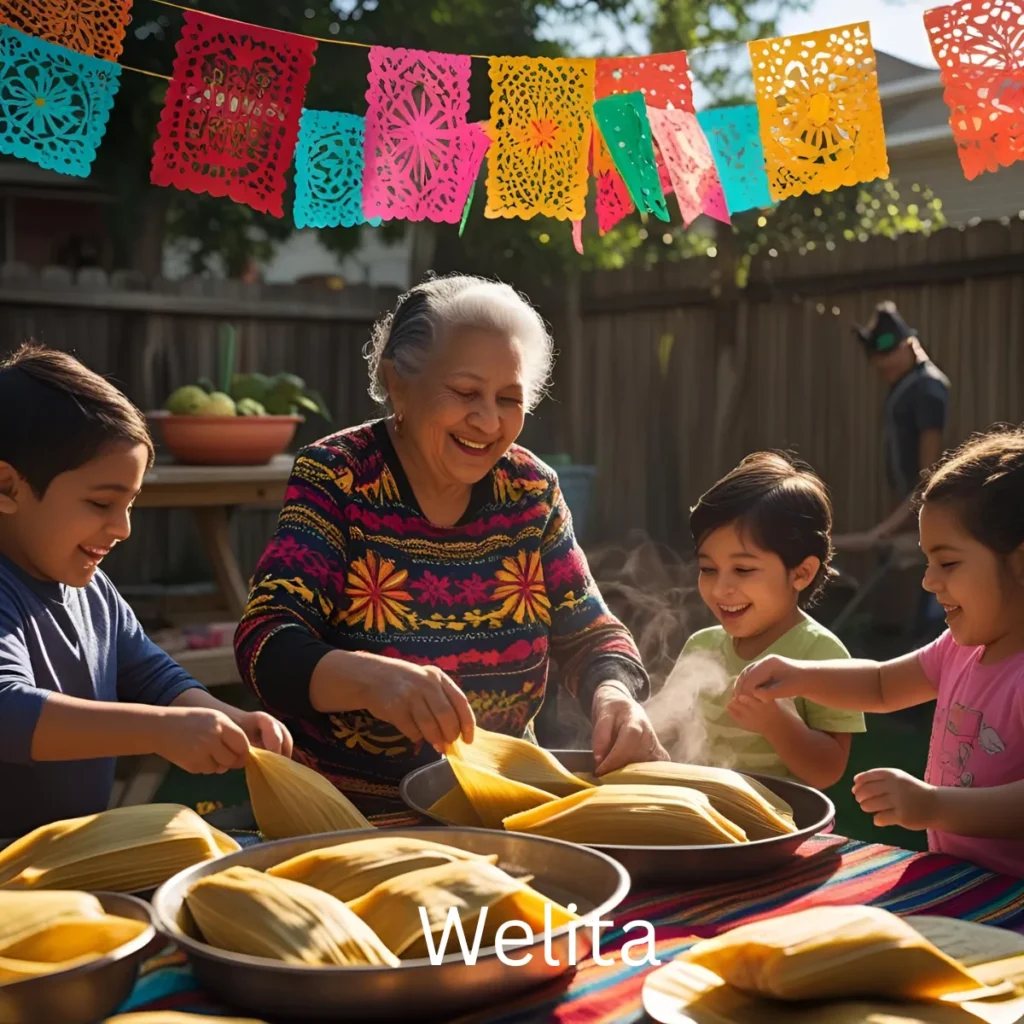If you’re wondering how to say Grandma in Spanish, the most common and loving word is “Abuela.” This is a warm and respectful way to talk about your grandmother in everyday conversation. You will hear this word in Spanish-speaking families, TV shows, movies, and songs. Learning how to say it helps you connect better with Spanish speakers and show affection in a sweet and friendly way.
There are also cute and short versions like “Abue” or “Abuelita,” which sound even more affectionate.
In this guide, we’ll explore different forms of the word and when to use each one naturally.
Say Grandma in Spanish
Learning family-related vocabulary helps you connect more personally in any language.
15 Ways to Say Grandma in Spanish (with Meaning & Usage)
| # | Spanish Word / Phrase | Meaning (Easy English) | When to Use It |
|---|---|---|---|
| 1 | Abuela | Grandma (standard word) | Use in daily conversations, respectful and common. |
| 2 | La Abuela | The Grandma | Used when talking about your grandma to others. |
| 3 | Mi Abuela | My Grandma | Use when referring to your own grandmother. |
| 4 | Abuelita | Little / Dear Grandma | Very sweet and affectionate; shows closeness. |
| 5 | Abue | Short and cute nickname | Casual, used by kids and teens. |
| 6 | Abuelota | Big Grandma (playful tone) | A funny, loving nickname in some families. |
| 7 | Abueli | Cute, modern nickname | Used in texting or casual speech. |
| 8 | Abuelita querida | Beloved Grandma | Use when showing deep love and respect. |
| 9 | Mi viejita | My sweet old lady (very affectionate) | Only use if your grandma is okay with cute jokes. |
| 10 | Abuela materna | Maternal grandmother | When describing family relation from your mom’s side. |
| 11 | Abuela paterna | Paternal grandmother | When describing grandma from your dad’s side. |
| 12 | La jefa de la familia | The boss of the family (humorous) | When grandma is respected and leads the family. |
| 13 | La reina de la casa | The queen of the house | For loving, playful compliments. |
| 14 | Mi segunda mamá | My second mom | When your grandma raised or guided you closely. |
| 15 | Te quiero, abuela | I love you, Grandma | Use when expressing affection directly. |
1. Abuela
Origin: The most standard and widely used term for “grandmother” in Spanish. It comes from Latin avia, meaning grandmother.
Example:
👤 User A: ¿Dónde está tu abuela?
👤 User B: Está en la cocina preparando la cena.
Use: Neutral and appropriate in all Spanish-speaking countries.
2. Abuelita
Origin: A diminutive of abuela, this form adds -ita for affection. It’s like saying “granny” or “dear grandma.”
Example:
👤 User A: ¡Abuelita! ¿Me haces chocolate caliente?
👤 User B: Claro que sí, mi amor.
Use: Very affectionate and common in Mexico, Central America, and parts of South America.
3. Abue

Origin: A shortened version of abuela or abuelita, used for ease and affection.
Example:
👤 User A: Abue, ¿puedo ver la tele contigo?
👤 User B: Ven, siéntate a mi lado.
Use: Informal and loving; common among younger generations.
4. Lita
Origin: A playful short form of abuelita, especially popular in some Latin American families.
Example:
👤 User A: ¡Lita! Te traje flores.
👤 User B: ¡Qué lindo eres, gracias!
Use: Very affectionate and casual, often used by toddlers or little kids.
5. Yaya
Origin: Used mainly in Spain and parts of Latin America. Believed to come from baby talk or possibly Greek influence (yiayia).
Example:
👤 User A: ¡Yaya! ¿Me cuentas un cuento?
👤 User B: Claro, mi cielo.
Use: Common in Spain and among families who favor warm, informal names.
6. Nana
Origin: While not strictly Spanish in origin, nana is sometimes used across cultures as a universal, soft word for grandmother. Also means “lullaby” in Spanish.
Example:
👤 User A: Nana, ¿quieres salir a caminar?
👤 User B: Me encantaría, gracias.
Use: Cross-cultural and soft; sometimes used in bilingual households.
7. Mamama

Origin: Used in countries like Argentina, mamama is a traditional way to refer to one’s grandmother, often on the maternal side.
Example:
👤 User A: Mamama, ¡te extrañé mucho!
👤 User B: Yo también, mi amor.
Use: Mostly found in South America, especially Argentina and Uruguay.
8. Mami
Origin: While mami generally means “mom,” in some families it’s used for grandmothers out of affection and tradition.
Example:
👤 User A: ¿Vamos a ver a la mami este domingo?
👤 User B: Sí, lleva el pastel que le gusta.
Use: Used selectively in families; varies by tradition.
9. Mamita
Origin: Diminutive of mami, sometimes used for grandmothers in rural or traditional households.
Example:
👤 User A: Mamita, ¿te ayudo a tejer?
👤 User B: Qué lindo, ven acá.
Use: Emotional and affectionate; used in some Latin American homes.
10. Wela
Origin: Slangy abbreviation of abuela, similar to how English speakers might say “gram.”
Example:
👤 User A: ¡Wela! ¡Mira lo que dibujé!
👤 User B: ¡Qué bonito! Lo pondré en el refrigerador.
Use: Modern and informal; used mainly among kids or teens.
11. Welita

Origin: Diminutive slang of abuelita—especially popular in Mexican-American communities.
Example:
👤 User A: Welita, ¿me das otro tamal?
👤 User B: Por supuesto, corazón.
Use: Used in Spanglish settings or Chicano culture.
12. Mama Grande
Origin: Literally “Big Mama.” This phrase can carry respect and authority, often used for the family matriarch.
Example:
👤 User A: Mama Grande siempre tiene la última palabra.
👤 User B: ¡Como debe ser!
Use: Respectful, traditional; used in rural or multigenerational households.
13. Tita
Origin: Used in the Caribbean (like Puerto Rico, Dominican Republic), often as a cute, short nickname for grandma.
Example:
👤 User A: ¡Tita, te traje dulces!
👤 User B: ¡Gracias, mi niño lindo!
Use: Caribbean Spanish; affectionate and informal.
14. Vieja
Origin: Literally means “old woman,” but in some regions like Argentina, vieja is used affectionately for one’s mom or grandma.
Example:
👤 User A: Che, ¿vamos a ver a la vieja esta tarde?
👤 User B: Sí, ya debe estar preparando empanadas.
Use: Can be affectionate or offensive—use only if culturally appropriate.
15. Chula Vieja
Origin: Literally “cute old lady.” A playful nickname for a beloved grandmother, especially used among very close families.
Example:
👤 User A: ¡Mi chula vieja! ¿Cómo estás hoy?
👤 User B: Más feliz ahora que llegaste tú.
Use: Playful and loving, but very informal.
FAQs
1. What is the most common word for Grandma in Spanish?
→ Abuela is the most common and standard word.
2. Which word is the cutest or most affectionate?
→ Abuelita and Abue are very sweet and loving.
3. Can I call someone else’s grandma “Abuela”?
→ Yes, if you are close to them. It sounds warm and respectful.
4. How do I say “my grandma” in Spanish?
→ Mi abuela.
5. Is there a difference between maternal and paternal grandmothers?
→ Yes:
- Abuela materna (mother’s side)
- Abuela paterna (father’s side)
Conclusion:
Now that you know how to say grandma in Spanish, you can speak about your loved ones with warmth and affection. Whether you use “abuela” or the sweeter “abuelita,” these words show love and respect for a special family member. Understanding these terms also brings you closer to Spanish culture and traditions.
Keep practicing how to say grandma in Spanish to express your feelings naturally and make your conversations more heartfelt. A simple word can carry generations of love. 💕



